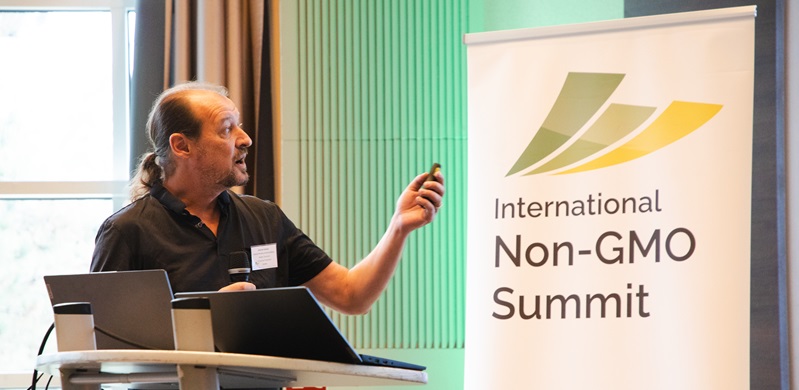News
Status quo and prospects for new genetic engineering regulations
The EU Commission's proposal remains controversial
Dr Dietmar Vybiral is a proven expert as Chairman of the Austrian Scientific Committee on the Release and Placing on the Market of GMOs and as a member of the EU Working Group on Genetic Engineering. He explained the EU Commission's proposal for the regulation of new genetic engineering (NGT) of July 2023 and focused in particular on the categorisation of NGT products. Plants with up to 20 DNA modifications at up to 20 sites in the genome are assigned to the NGT-1 category in the Commission's draft and are treated in the same way as conventional breeds, therefore authorised without risk assessment and only labelled at seed level. The very small proportion of plants assigned to the NGT-2 category are not considered equivalent to conventional breeding and will remain regulated, but will only undergo a simplified authorisation procedure, according to Vybiral. The EU Parliament adopted the Commission's draft in February 2024, but the majority voted in favour of labelling all NGT products up to the end product. In the Agriculture Council, on the other hand, the draft remains controversial and no agreement has yet been reached.
Stalemate in the Agriculture Council - Poland's key role
Until the stalemate in the Agriculture Council is resolved, the trilogue between the Commission, Parliament and Council, which is necessary for the legislative process, cannot begin. According to Vybiral, Poland, which will take over the Council Presidency from Hungary in January 2025, has a key role to play. It could shift the majority in the Agriculture Council so that the trilogue negotiations materialise and the Agriculture Council then approves the deregulation by a majority. Vybiral fears such a move, but expects it to happen in the second half of 2025 at the latest when Denmark takes over the Council presidency. The country will campaign vehemently in favour of deregulation. Vybiral is in favour of Austria's consistent stance against deregulation and urged those involved in the Non-GMO sector to confront their governments with their concerns, the risks and the negative impacts of the planned new GMO regulation and convince them to vote against it.
No agreement in sight this year
There are too many unresolved issues, said Vybiral. At the beginning of the current Council Presidency, Hungary attempted to evaluate the unresolved issues with a non-paper and received feedback from 17 Member States. However, it has not made any progress in the deadlocked negotiations. Hungary rejects genetic engineering and has even officially documented this, as emphasised by Agriculture Minister István Nagy in his welcoming address to the Non-GMO Summit.
So far, the opponents of deregulation - Austria, Slovenia, Croatia, Hungary, Romania and Slovakia - have succeeded in preventing the EU Commission's proposals from being approved. The Baltic and Scandinavian states as well as Ireland and the Netherlands are among those in favour of more lax genetic engineering legislation, but do not achieve the necessary qualified majority in the Agriculture Council. Germany has so far been forced to abstain due to disagreement within the coalition, even though the BMEL has criticised the proposal, particularly with regard to coexistence and transparency. In her welcoming address to the Non-GMO Summit, State Secretary Silvia Bender promised support for the preservation of GMO-free value chains and a socially acceptable solution.
"Keep calm and carry on!"
At the end of the Non-GMO Summit, Heike Moldenhauer, Secretary General of the European Non-GMO Industry Association (ENGA) from Brussels, was combative and called on the Non-GMO sector to remain committed and vehemently opposed to NGT deregulation, to stay calm and to continue to pursue the successful industry strategy. She cited many reasons that speak against a short-term triumph of new genetic engineering: There are currently only a handful of NGT products on the market worldwide and none yet in the EU, she said. The Non-GMO industry is booming and its products are in demand, while the majority of manufacturers, retailers and consumers reject genetically modified food. Research and development of detection methods are making great progress, which is why she is confident that NGT plants can continue to be excluded from the value chains of the Non-GMO industry in the future.
European enterprises call for rigorous labelling of NGTs

